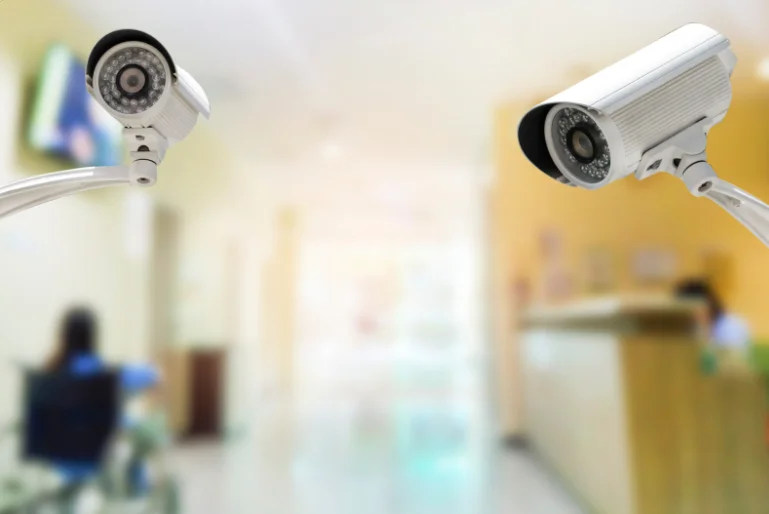
What Are The 5 Main Benefits Of Integrating Facial Recognition Cameras Into Your Hospital Security System?
Facial recognition cameras make use of sophisticated back-end software to identify and recognise individual human faces. Facial recognition is widely used in commercial CCTV systems and by a growing number of private sector and healthcare organisations, so what are the main benefits of integrating facial recognition into your hospital security system?
What Exactly Is A Facial Recognition Security Camera?
Facial recognition security cameras have inbuilt biometric algorithms that map a recognisable face from the position of a person’s facial features and store that information on a secure database as a unique ‘face print’. This can be used to recognise the individual when they subsequently appear on the camera network, and can often be linked to the person’s name and other identifying features.
These facial recognition AI algorithms have improved greatly over the past couple of years, to the stage where facial recognition cameras now pay a major role in security and crime resolution, as well as access control and other security processes.
A person’s face print, alongside other biometric data, is considered very sensitive information under UK Data Protection law, so must be carefully monitored and stored. However, it can be legitimately used in hospitals for a variety of important security and service delivery functions:
How Facial Recognition Cameras Are Used In Hospital Security:
1) Secure Patient Check Ins
Facial recognition security cameras can simplify the check-in process by admitting a person to a ward or secure area by verifying their face print – in the same way as you might unlock a phone using your fingerprint or retinal scan. This can improve the safety of reception staff during quiet times and save time by automating check ins in busy periods.
2) Recognise Distressed And Agitated Patients
Facial recognition algorithms can be designed to recognise specific emotional states, such as anger and fear. In hospitals, this can give security staff advance warning of potentially antisocial behaviour by patients or visitors, or alert medical staff to patients in pain or emotional distress, under the influence of alcohol or drugs, or experiencing an adverse effect from medication. In many medical emergencies – such as during the early stages of a heart attack or stroke, or anaphylactic shock – a prompt response can make the difference between life and death.
3) Track And Monitor The Movement Of Patients, Suppliers, Staff, And Visitors Around The Hospital
Facial recognition software helps you keep track of the movement of checked-in patients, visitors, and suppliers around the hospital – in cases where you would otherwise lose track of them as soon as they left reception. This helps ensure that all hospital users are carrying out a legitimate purpose and immediately flags up bogus or attempted criminal activity on site. Vulnerable patients – such as patients with dementia and mental health conditions – can be quickly located if they wander off unattended or attempt to leave site, and immediate notice can be given of unsafe behaviours, such as a patient removing his or her breathing tube. It also helps test the effectiveness of hospital signage in directing people to the correct locations!
4) Monitor Medication Usage
Many bedside medical devices allow patients to self-administer pain and other medications, which takes the pressure off staff and give patients greater freedom over their treatment, but also creates the risk of accidental overdose. A facial recognition camera on ward can monitor the medication dosage of individual patients, keeping track of the timing and volume of doses and alerting staff to any potential issues.
5) Secure Access Controls For Authorised Persons
Facial recognition cameras allow nurses, doctors, contractors, and staff to move around the hospital unimpeded according to their level of security access without the need to carry keys and security fobs – which could easily be misplaced or stolen. At the same time, access can be denied to unauthorised persons, reducing the risk of break-ins and helping prevent crime.
Facial Recognition Integration From IC2 CCTV
At IC2 CCTV, we help NHS and private hospitals install advanced facial recognition cameras and supporting software into their security systems, enhancing patient safety, and deterring criminal activity. To find out more, please get in touch with one of our CCTV security specialists today.
Image source: Canva



